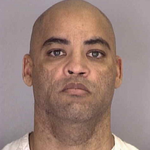
NEWS (10/16/20) — Texas: A divided Texas Court of Criminal Appeals (TCCA) has upheld Kousol Chanthakoummane’s conviction and death sentence, which he argued had been obtained with junk bite mark testimony, hypnotized witnesses, and questionable DNA testimony.
Chanthakoummane presented expert testimony in state post-conviction proceedings that the hypnotically refreshed testimony against him was unreliable, that bite-mark identification testimony has no scientific validity, and the prosecution testimony on DNA relied on erroneous data in the FBI DNA database and flawed statistical methodology. The trial court rejected his claims, signing the proposed factfinding submitted by Collin County prosecutors.
The TCCA ruled that, although Chanthakoummane had shown that the state’s DNA testimony was incorrect, proper DNA analysis would still have pointed to him as having been present at the crime scene and the contributor of DNA found under the victim’s fingernails. It agreed that bite-mark identification testimony has been scientifically discredited and could not be offered today but said the testimony was harmless given the remaining DNA evidence. And the court rejected Chanthakoummane’s challenge to the use of hypnotically refreshed testimony, saying that evidence that the flaws in hypnotically refreshed testimony were known at the time of trial and should have been raised at that time. Three dissenting judges would have agreed to review the constitutionality of the prosecution’s use of the hypnotically refreshed testimony.

NEWS (10/16/20) — Pennsylvania: The Pennsylvania Supreme Court has quashed the appeals of three more Philadelphia death-row prisoners whose appellate rights had been restored as a result of the conflict of interest of a justice who sat on their appeals after authorizing their capital prosecution when he was district attorney.
In 2016, the U.S. Supreme Court held in Williams v. Pennsylvania that former Pennsylvania Chief Justice Ronald Castille’s participation in deciding an appeal brought by a prisoner whose capital prosecution Castille had personally authorized violated due process. Earlier this year, however, the Pennsylvania Supreme Court ruled 4 – 3 in Commonwealth v. Reid that the defendants in the more than 40 other Philadelphia death-penalty cases in which Castille had the impermissible dual role should have raised the conflict of interest issue as soon as they knew about the conflict. Applying that case precedent, the court ruled that petitions for conflict-free appeals filed by Henry Daniels, Anthony Reid, and Craig Murphy, who filed their challenges after Williams was decided, were untimely.

NEWS (10/14/20) — California: The California Supreme Court has ordered a San Matteo County trial court to conduct a hearing on whether Scott Peterson’s conviction for capital murder should be overturned. The court, which previously overturned Peterson’s death sentence as a result of the trial court’s improper removal of jurors for simply expressing personal opposition to the death penalty, directed the trial court to determine whether a juror had committed misconduct by not disclosing that she had been involved in other legal proceedings, including being the victim of threats by her boyfriend’s ex-girlfriend that had caused her to fear for the life of her unborn child. The Peterson case involved the highly sensational disappearance and murder of Peterson’s pregnant wife and the resulting death of her unborn child.

NEWS (10/6/20) — Indiana: The U.S. Court of Appeals for the Seventh Circuit has vacated the stay of execution previously issued by a district court to permit federal death-row prisoner Alfred Bourgeois to litigate his claim that he is ineligible for execution because of intellectual disability. Bourgeois had been one of the five initial death-row prisoners scheduled for execution in December 2019 — January 2020.
The Seventh Circuit ruled that Bourgeois was not entitled to review of his intellectual disability claim because he had previously raised and lost the issue in the Texas federal courts. At that time, however, the courts had rejected Bourgeois’ claim based upon factors the U.S. Supreme Court later declared in Moore v. Texas were unconstitutional considerations. Bourgeois is expected to appeal the Seventh Circuit’s decision.

DEATH PENALTY TRIAL DEVELOPMENTS — Very few prosecutors have pursued capital trials since courts first began to close to prevent further spread of the coronavirus. However, Arkansas prosecutors moved forward with the trial of Tacori Mackrell, an African-American defendant who was 18 years old when he killed a 72-year-old white woman. The all-white jury convicted Mackrell of capital murder but, after 2½ hours of sentencing deliberations on October 16, returned a verdict of life in prison without parole.

On October 13, a Nebraska jury convicted Bailey Boswell of conspiracy and first-degree murder in the death of a woman she and her co-defendant Aubrey Trail were accused of luring to their apartment through an on-line dating app. Under Nebraska law, her sentence will be determined by a three-judge panel after a separate sentencing hearing.
Trail was convicted in July 2019. His sentencing hearing has been delayed to December 2020 as a result of the COVID-19 pandemic. If Boswell is sentenced to death, she will be the first woman ever sentenced to death in Nebraska.

After delays related to the coronavirus and to evaluate the mental competency of Marlin Joseph, Palm Beach County, Florida Circuit Judge Cheryl Caracuzzo heard testimony on October 16 in the judicial phase of Joseph’s capital sentencing trial. In February, the jury in Joseph’s case recommended that he be sentenced to death for the murder of a mother and her 11-year-old daughter. Under Florida law, following a jury recommendation of death, the court is required to conduct a separate sentencing proceeding, after which it determines whether to accept the jury’s recommendation or impose a sentence of life without parole. No one has been sentenced to death in Palm Beach County since 2002.

NEWS (10/17/20) — Washington D.C.: The federal government has scheduled the executions of Lisa Montgomery and Brandon Bernard. Montgomery would be the first woman executed by the federal government in 67 years, and Bernard would be the youngest person executed by the federal government in 68 years.